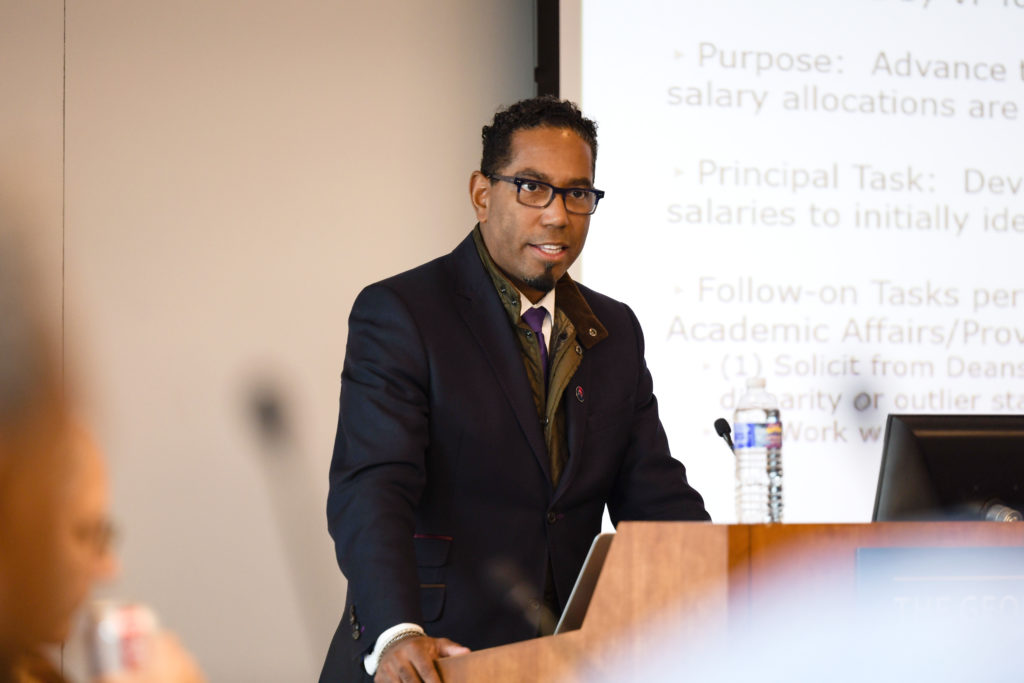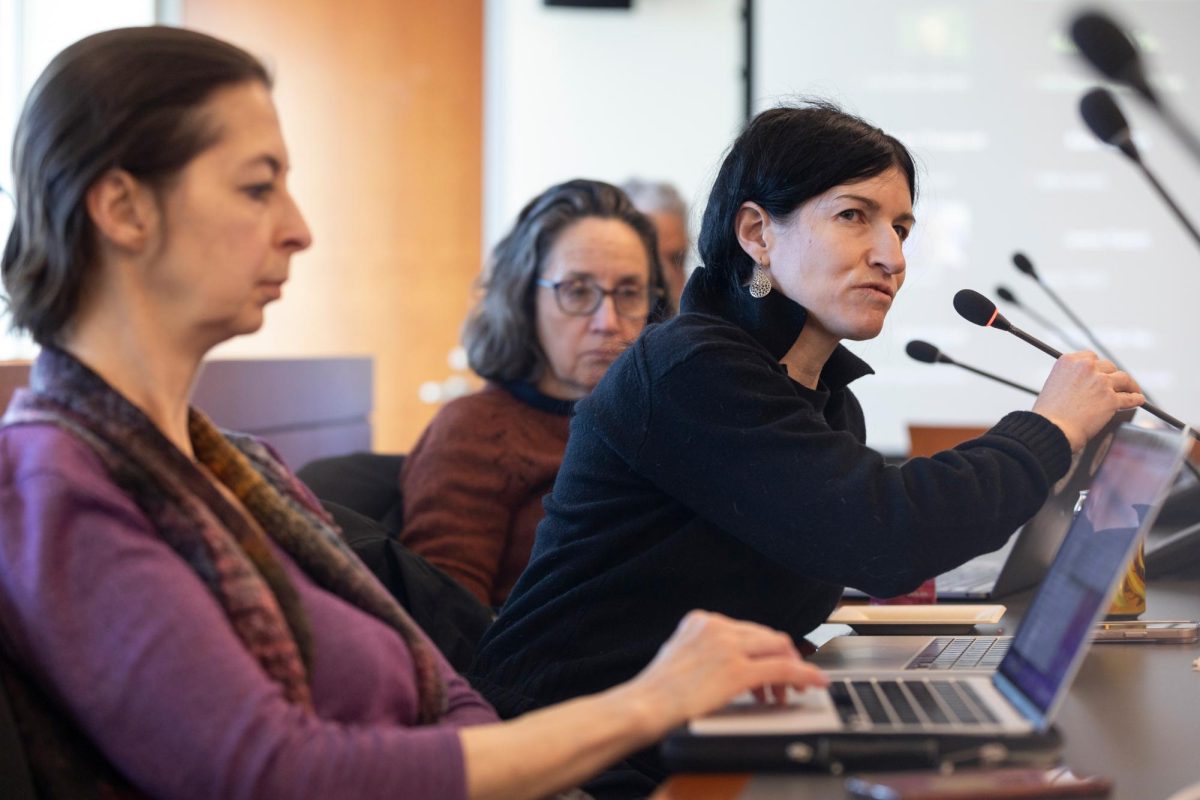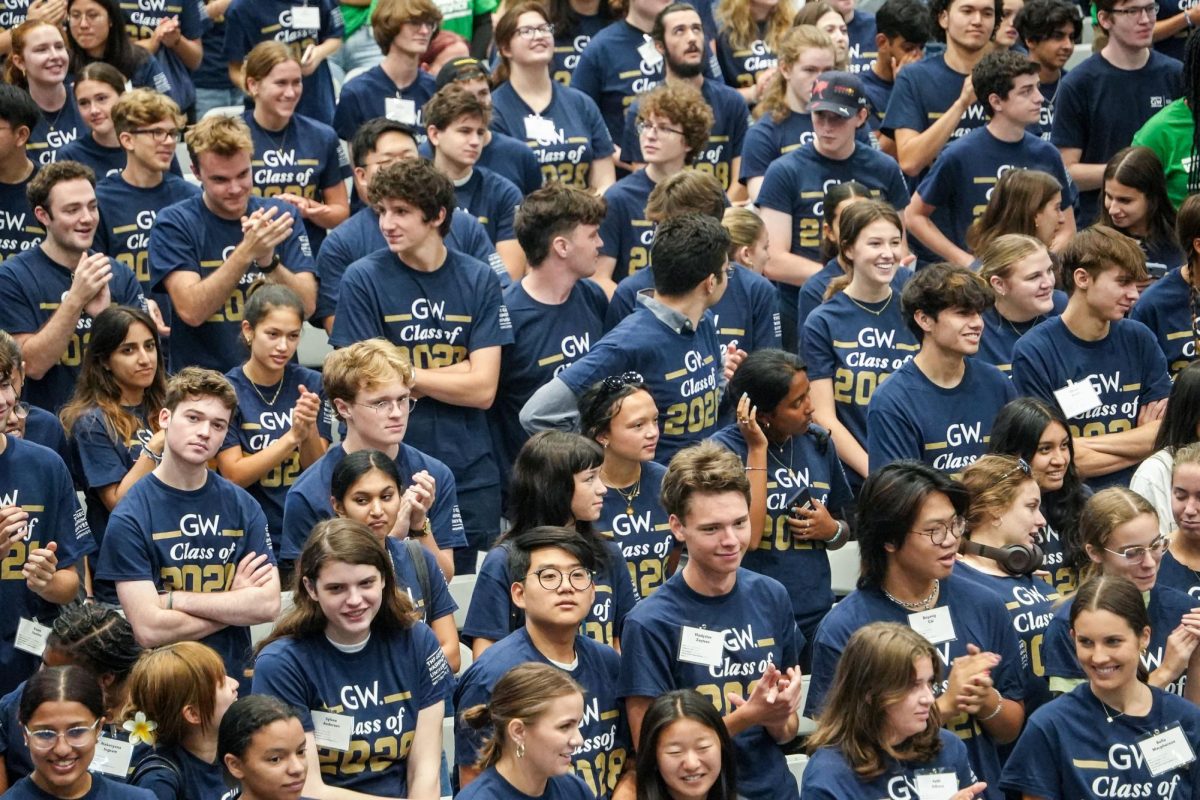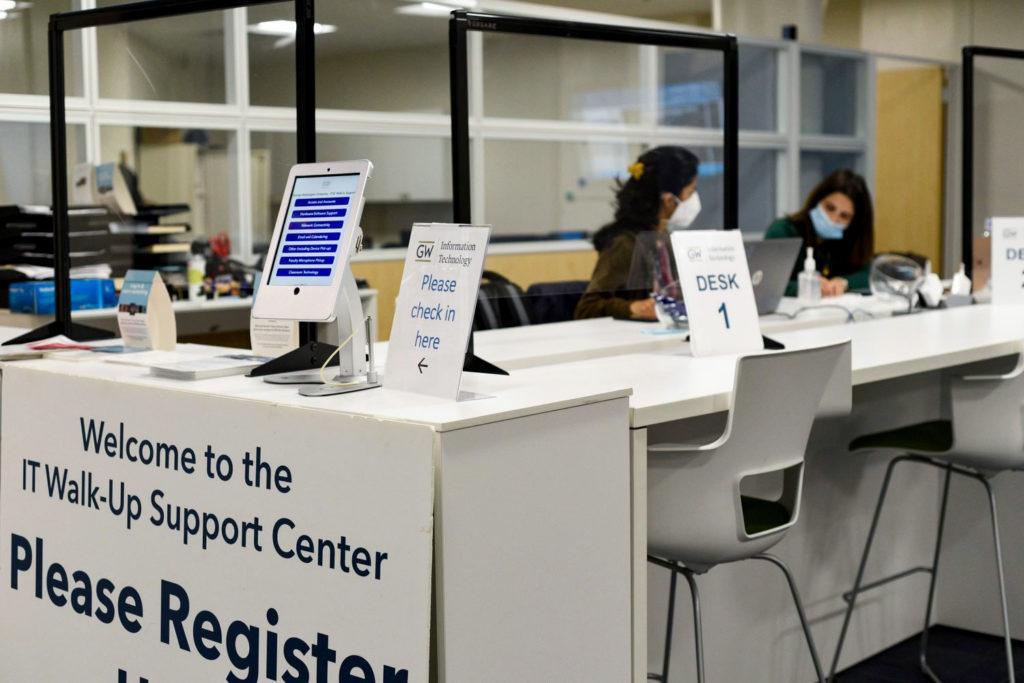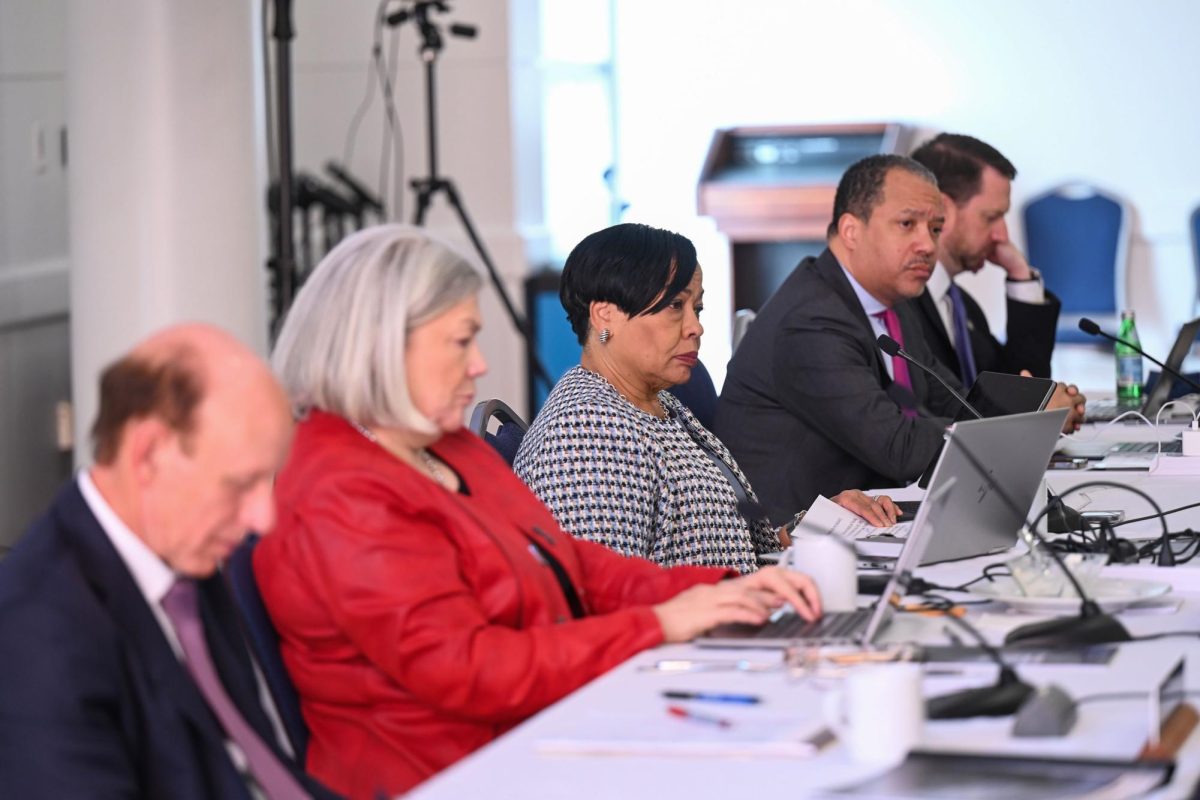In the absence of a broader strategic plan for the University, officials developed a set of academic priorities including academic medicine, equity and social justice, data science and sustainability and climate change.
Provost Chris Bracey announced at a Faculty Senate meeting Friday that deans and the Board of Trustees selected these priorities to build a basis for “comprehensive” planning moving forward. As the University undergoes a series of leadership transitions, it remains without a long-term strategic plan while officials wait for a permanent president to develop one with substantial faculty input.
The University will stand out from its peer schools and attract “world-class” faculty with its new academic priorities, like data science.
Bracey said officials are considering more online instructional offerings as part of GW’s long-term academic vision. A task force investigating new teaching innovations from the pandemic encouraged an emphasis on remote work and teaching last October.
He said GW’s commitment to anticipating the role of online courses in the future will establish the University as an internationally renowned institution.
“With regard to all of these academic priorities, the goals are to enhance GW’s global reputation, leverage the University’s strength and competitive advantages and position the University for leadership and impact in key areas of global importance,” Bracey said at the meeting.
Some faculty are concerned that other higher education institutions like American and Georgetown universities share the same priorities like inclusivity and social justice, and the University’s new academic priorities will not necessarily distinguish GW from other schools.
Katrin Schultheiss, an associate professor of history and a faculty senator, said these academic priorities are in line with broader trends across higher education and are not unique to GW.
“I was disappointed, and I was hoping to hear something a little more original than that,” Schultheiss said.
Interim University President Mark Wrighton said the University will allocate more than $50 million from GW’s $54 million sale of its 20 percent stake in the GW Hospital toward 14 endowed professorships to further prioritize academic medicine during the meeting.
Jenna Chaojareon, a member of the senate’s operations team, introduced a new voting system for the Faculty Senate through Microsoft Forms since the former voting system through WebEx had been “confusing” for some senators. Under the new voting system, only senate staff members would be able to see how each senator voted, unlike the previous virtual and in-person voting systems when voting records were visible to the public.
Bracey said University leaders introduced the five officials who were appointed to new positions in the Office of the Provost in June.
Geneva Henry – who became dean of libraries and academic innovation and vice provost for libraries and information technology – said among her top priorities, she wants to provide more computers to the GW community, after supply chain issues have decreased access to the technology.
“If our faculty and our students can’t succeed, why are we here?” Henry said in the meeting.
In 2020, former officials consolidated GW Information Technology to be under former Chief Financial Officer Mark Diaz’s purview and laid off dozens of technology staff in 2021 as part of pandemic-related budget cuts. GWIT received 751 support requests in the first week of the 2021-22 academic year, more than double the requests in the first week of the spring 2021 semester.
Henry said she and IT staff will be “sensitive” toward data privacy and are committed to finding a balance between using data to improve IT functionality and respecting student, faculty and staff privacy.
Officials told the University community in February that officials tracked students, faculty and staff movements across campus without their consent last fall. Wrighton said he learned of the project shortly before communicating it to the GW community.
Bracey said at the meeting that officials would implement a series of data privacy guidelines this fall as part of a task force’s work to devise data privacy recommendations after Wrighton was made aware of the data collection project.
Colette Coleman, the newly appointed vice provost for student affairs and dean of students, said she wants to teach students the meaning of being a part of the GW community so they can be proud of it. She said students had more opportunities to meet new people at this year’s move-in because they did not have to quarantine after arriving on campus like previously required.
“We’re seeing that that has definitely had an impact in terms of their mental health and wellness,” Coleman said. “So looking at the numbers of where we were last year and where we are today, it’s exciting to see that trajectory.”
She said attendance at freshmen residence hall events and faculty-in-residence programs will build a sense of community and pride.
“We’re excited and looking forward to that and we can’t do that work without partnerships across the institution,” Coleman said. “We look forward to partnering with the faculty in every way that we can.”


